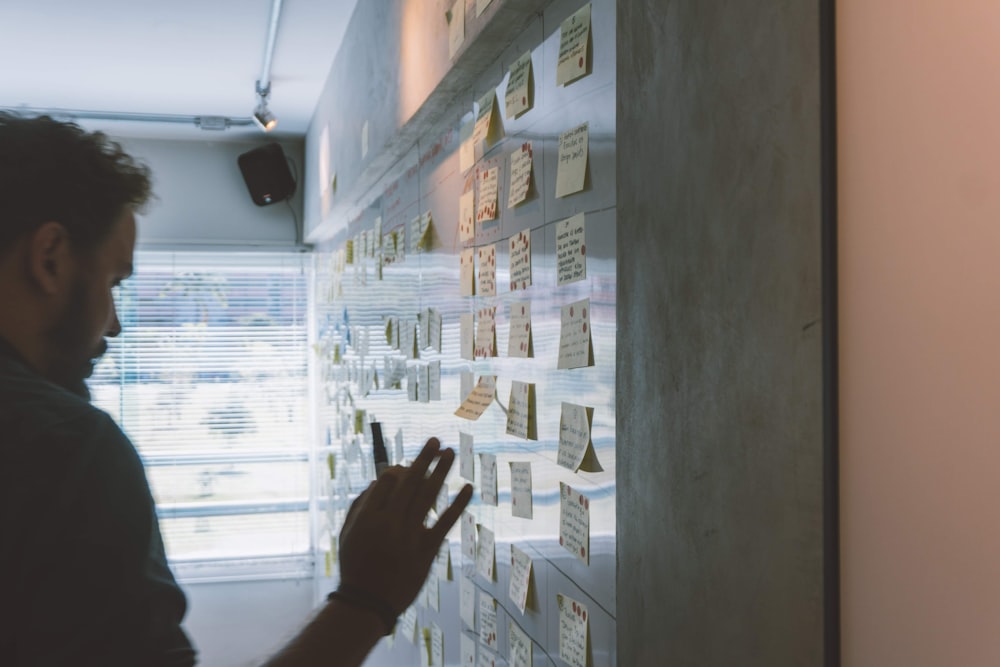This week was really similar to the last one – lots of reviewing and little new information.
This week was focused on analyzing data from an interview.

It was interesting to see a different approach – we learned, that you should transcript your recording and work with it as a written document. However, in this lesson, it was suggested we should only listen to the recording and write down our notes and do our coding this way. It was kind of strange to me! But I had to say it is not that time-consuming. However, I still think I would like to write down the interview, especially in the case of something important, this way it feels more through. But maybe I would use this method for something less formal.
Notes were written on the post-it notes again and we were encouraged to arrange them again, write connection, etc. Apparently, this is called the affinity wall method. This method was something I liked and I can see myself using it in the future. I usually just write down points on the paper, but this way you can see connections, etc. better, you can make hierarchy easily, and so on.
This part was the most beneficial one of the whole lesson.
The last step focused on writing a report from our research, some examples were given – how to pinpoint important parts, stay clear in what you want to say, be direct…
Overall I enjoyed this lesson more than previous ones, but overall I was hoping for something else. More on that topic in my next post, where I´m going to focus on the course as a whole.

